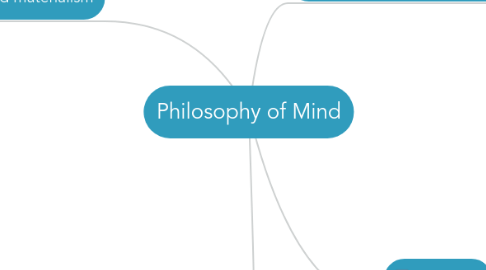Philosophy of Mind
por Anna Bromely


1. Dualism and materialism
1.1. Materialist: Mental states are simply material states, the subjects of mental states have no components apart from the material components of their body. Dualist: Mental states must be material states. The material components of bodies can't be all their components.
1.2. Aristotle argues against dualism - his challenge is teleological.
1.3. The soul is not material or immaterial it. The soul has a hylomorphic teleological conception. Is the primary source of unity.
2. The relation of body and soul
2.1. Soul and body are a compound of each other. A similar relation to that of form and matter.
2.2. The soul informs or animates the body. However, it is not separable, souls cannot exist apart from bodies.
2.3. Purpose is exhibited in the behaviour of the body. For Aristotle the soul is a power, capacity or faculty - not a living thing or spiritual item. Intellect can exist apart from the body (NOUS) -The mind which can think itself -First cause -Is itself a substance
2.4. Persona is latin for mask that an actor holds up. But it can be advantageous - a kind of pinning on of virtue. And doesn't have to be a deceit or trick. Instead a legitimate habituation.
2.4.1. Introduction - why are you writing about this?
2.4.2. Subhead 1
2.4.3. Subhead 2
2.4.4. Subhead 3
2.4.5. Conclusion - what summarizes what is most interesting about your topic?
3. Aristotle's De Anima (on the soul)
3.1. The soul is that by which we live, perceive and think. The soul is a final cause (Teleological explanation)
3.2. The soul is form or in other words the actuality of the body
3.3. Form is what matter acquires when it comes into being. Soul is proximate to the body, soul informs the body. Soul is always about life.
3.3.1. Inspire someone about your topic?
3.3.2. Specific grade?
3.3.3. Do your best work?
